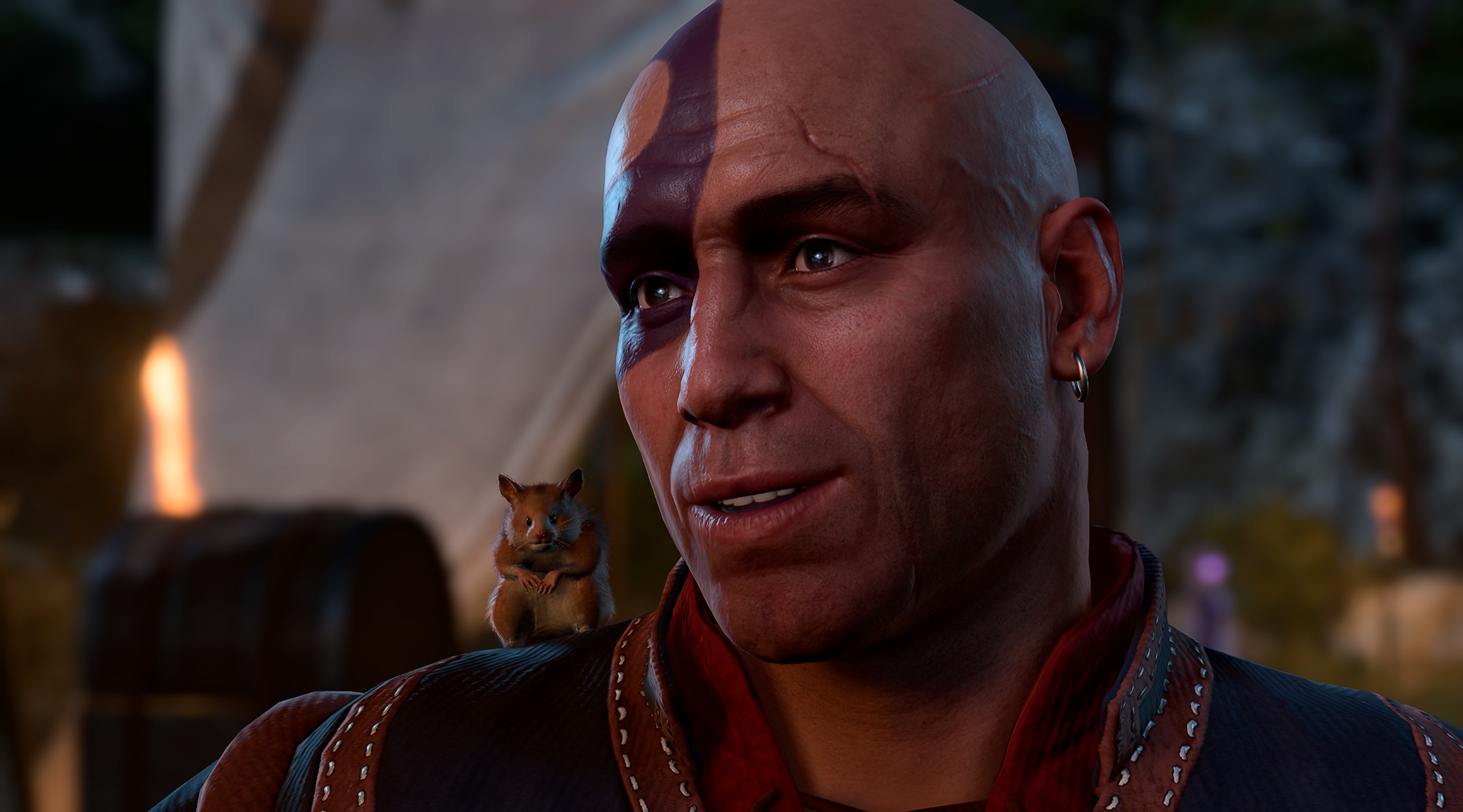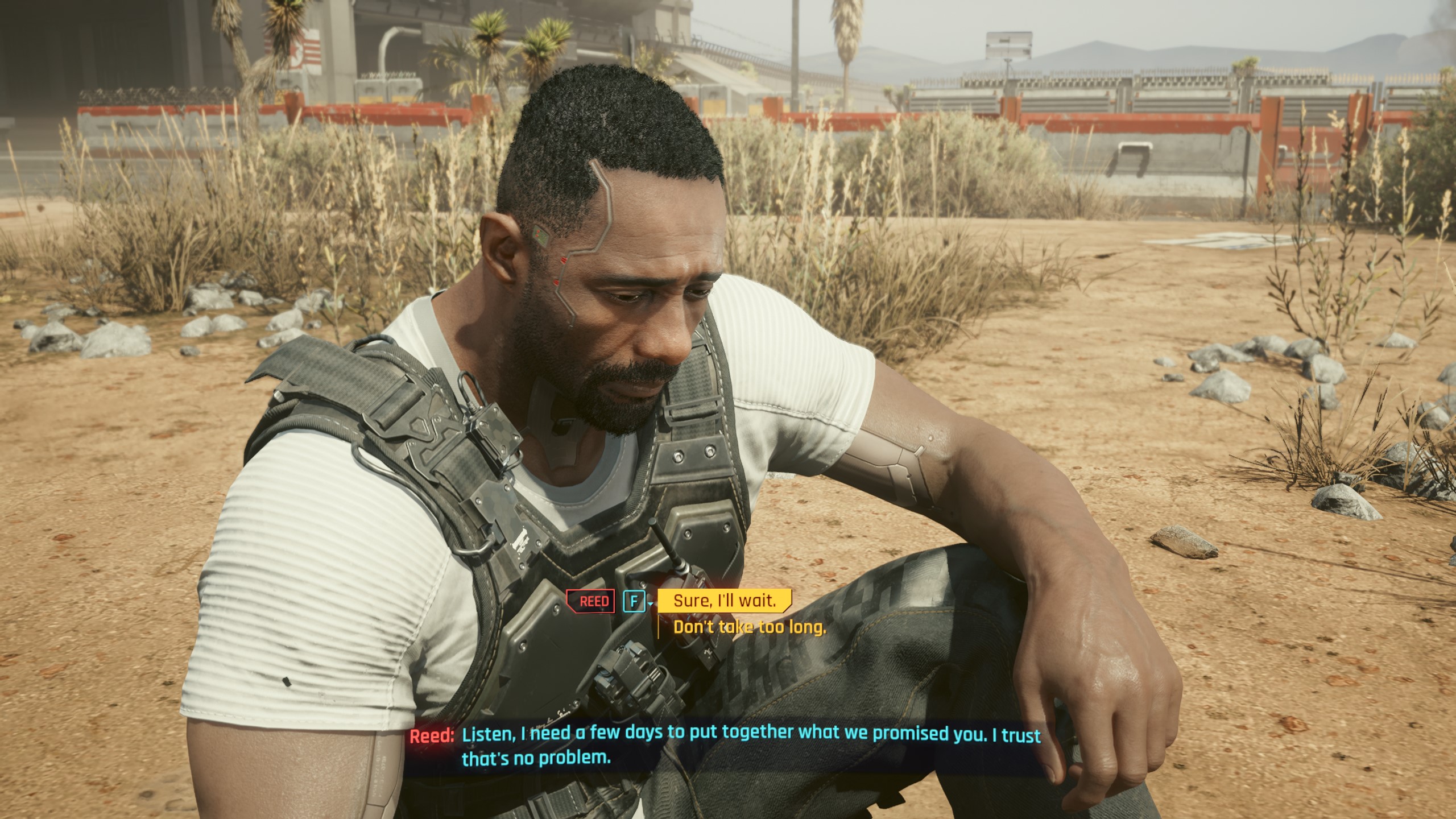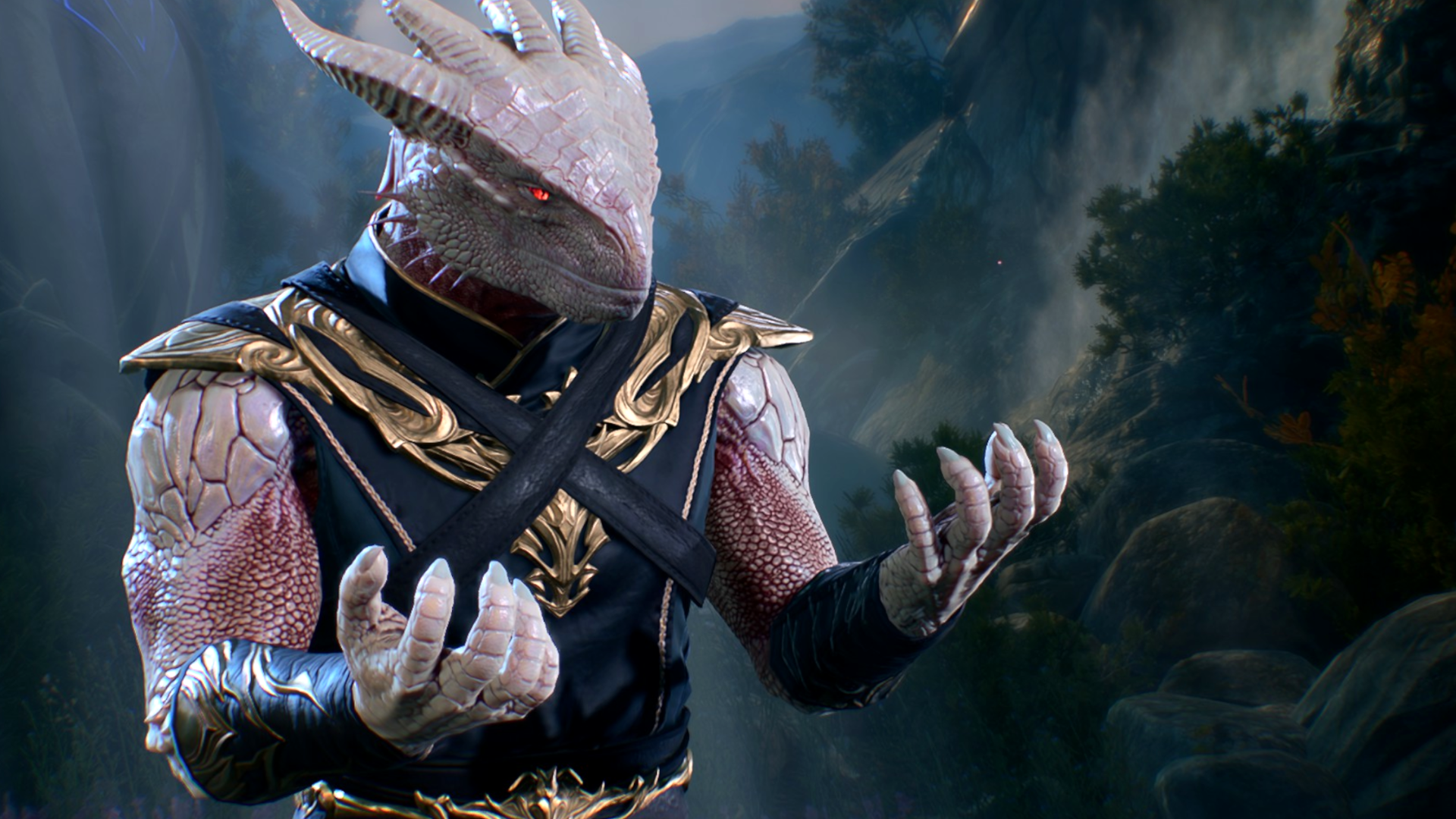Baldur's Gate 3's new epilogue bucks RPG trends to give you a chance for an honest-to-god happy ending, and that just makes more sense than grim ambiguity for its own sake
Just this once, everybody lives.

When I loaded into Baldur's Gate 3's new epilogue, what I found was extremely sweet, almost saccharine. After parting ways with my true companions in the OG ending, some seemingly going off to their deaths or assorted metaphysical torments, it felt like a real "the Fellowship has failed" moment.

Baldur's Gate 3 guide: Everything you need
Baldur's Gate 3 tips: Be prepared
Baldur's Gate 3 classes: Which to choose
Baldur's Gate 3 multiclass builds: Coolest combos
Baldur's Gate 3 romance: Who to pursue
Baldur's Gate 3 co-op: How multiplayer works
Now though? All my buds came back for a six-month reunion party, and everybody's doing great! Companions with death sentences are on the road to recovery, and the good turns I did on my quest all seem to have just made people's lives better. Spoilers for Baldur's Gate 3 and Divinity: Original Sin 2 ahead.
As a self-serious, literary-minded RPG liker, I tend to prize stuff that's dark and sad and ambiguous: Planescape: Torment's existential tragedy or Fallout: New Vegas' intractable mire of post-apocalyptic ideologies. The thing is: Baldur's Gate's just never been that kind of series. Inexplicable Nietzsche quote aside, they're games that center classic heroic fantasies, where almost everyone can be saved and a golden ending achieved if you get everything right (except for Viconia, and everybody hated it).
You can be deliciously evil if you're so inclined, but it matches the heroism beat for beat in fantasy straightforwardness: whether you're embracing your murderous heritage as a child of Bhaal in the original games or siding with evil goblin cultists against a bunch of refugees in BG3, it's always fun and interesting, but never terribly nuanced.
Baldur's Gate 3's epilogue gives you straight answers: is letting Gale or Astarion become a godlike being a bad idea? Oh yeah. Is Shadowheart happier if you keep her parents alive, albeit a little cursed? You betcha. Is it a bad idea not to get your Bhaal murder brain issue sorted out as the Dark Urge? No bonus points for correct answers on that one. These are all consequences that make sense, and while BG3's epilogue removes ambiguity and clearly spells out what choices are right and wrong, the wish fulfillment nature of its story and the way it clearly telegraphs the consequences of your actions make this feel like the right fit for the game.
Bummer summer
I finished two other big RPGs between Baldur's Gate 3's launch and the release of this revised epilogue: Cyberpunk 2077: Phantom Liberty, and a replay of Larian's previous hit, Divinity: Original Sin 2. Those are games where not everybody gets to win, and the consequences of your actions aren't always clear.
Phantom Liberty nails this type of narrative: it's a noir story where well-intentioned, likable characters are pitted against each other with no room to work things out, and you're eventually faced with an excruciating choice where both options betray someone who put their trust in you.
Keep up to date with the most important stories and the best deals, as picked by the PC Gamer team.

The expansion's megaton bummer endings fit that story. What's more, CD Projekt Red was faced with a similar narrative problem to Larian, in that both Cyberpunk and BG3's launch endings leave you with questions while also introducing enough potential character deaths and status quo changes to be difficult to address in a follow-up story.
Everybody's all like 'Hey, I think you picked the wrong ending.' Screw you man, I like my ending!
Where Baldur's Gate 3 quickly happied up its ending, even going so far as to tease the story's continuation in the new epilogue, Cyberpunk doubled down, setting Phantom Liberty in the middle of the main game and introducing a new alternate main ending, The Tower, that is somehow more bleak than any of the others. 2077's endings were as much about theme and message as they were providing satisfying conclusions and tying up character arcs, and I appreciate CDPR's commitment to leaving them untouched.

Divinity: Original Sin 2 stumbled in attempting something similar: it's a game with a comparable heroic tone to Baldur's Gate 3, but its endings all have a discordant, bittersweet note to them that comes out of nowhere. At least one companion romance will inexplicably and abruptly break off, and after a whole game depicting deities as cruel, capricious beings that have ruined the world, the only "good" endings for the setting see you assuming divine power for yourself or investing it in one of the game's main villains.
I always pick the anarchic pinko ending where you split divine power equally between all the people of the world, and this nets an epilogue where everyone's so selfish and powerful, the world devolves into permanent warfare. During the playable denouement, everybody's all like "Hey, I think you picked the wrong ending." Screw you man, I like my ending!
Group edit
All of which is to say, I love endings that are grown up, ambiguous, and desolate, but it has to fit the story, and Baldur's Gate 3 just isn't that type of game—it only makes you feel like you messed up if you miss clear signals or decide you want to be deliberately evil. Feed into your companions' insecurities instead of helping them, side with the marauding goblins instead of the peaceful refugees, sign your soul away to a murder cult: these choices result in predictably grim conclusions.

If you turn your main character or Karlach into a Mind Flayer during the endgame sequence, it's made pretty clear that they've become a monster, and whatever's left of their previous personality has been fundamentally altered. Gale, empowered with the Crown of Karsus, has pretty clearly gone mad with power. Ditto for if you sacrifice like, 200 children to turn Astarion into an Ascendent Vampire. And don't even get me started on what happens if you fail to cure the Dark Urge. Do bummer stuff, get a bummer ending—it just makes sense.
The ending I got was pretty mushy and sweet, but that also tracks—I saved the damn day every time! If you choose to turn Baldur's Gate 3 into a more dark and morbid story, it adjusts accordingly. A downer ending, much like a happy one, has to be earned by the story lest it feel cheap or abrupt, and Baldur's Gate 3 lets you take your pick of either extreme or a bittersweet mix of the two. No matter what, it follows from your choices.
Ted has been thinking about PC games and bothering anyone who would listen with his thoughts on them ever since he booted up his sister's copy of Neverwinter Nights on the family computer. He is obsessed with all things CRPG and CRPG-adjacent, but has also covered esports, modding, and rare game collecting. When he's not playing or writing about games, you can find Ted lifting weights on his back porch.

